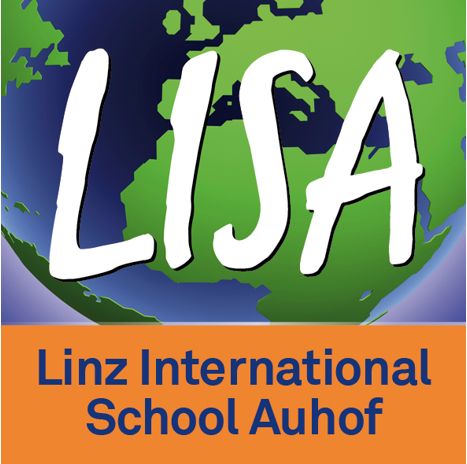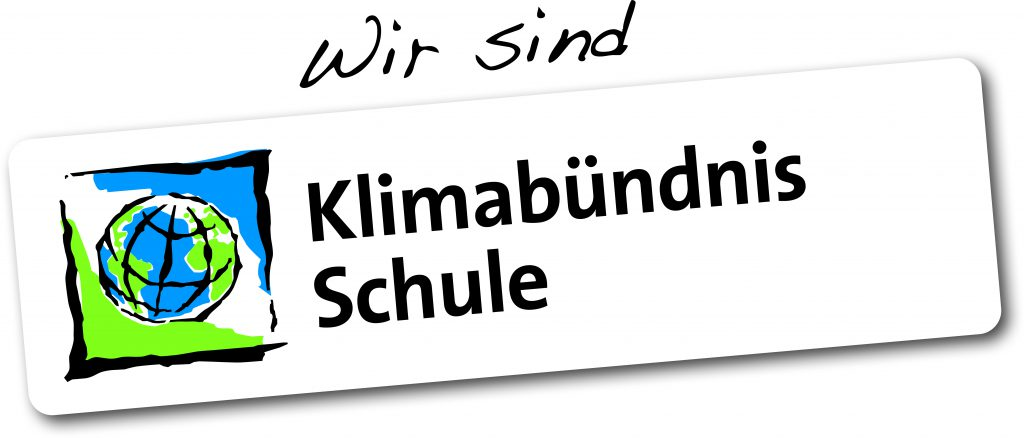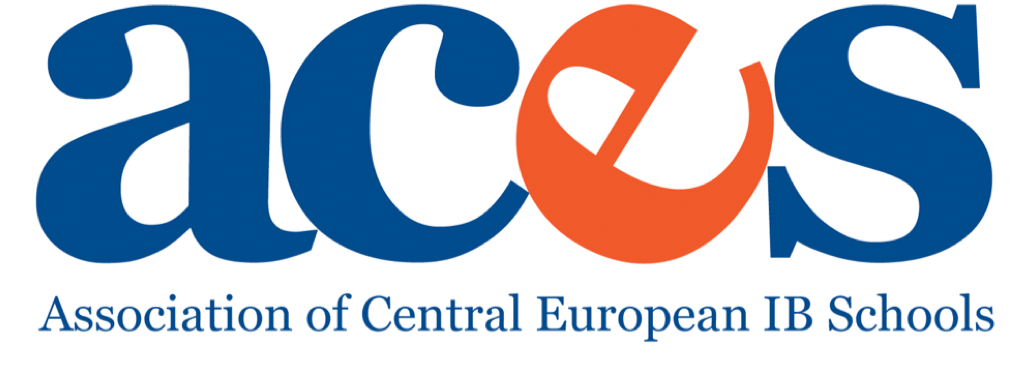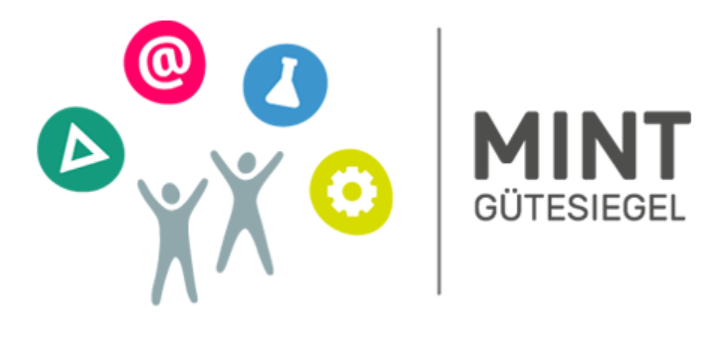LISA Language Policy
1. Introduction
LISA offers two school branches, Languages andEconomics. All students must take German, either as a mother tongue or as a foreign language. All students must take English either as a mother tongue or as a foreign language. If neither English nor German is their mother tongue, then they have to take a self-taught language as their mother tongue. If students can not take a self-taught language, due to the absence of a self-taught examiner, then students can be accepted as non-regular students (see section 7). They then choose German or English as their declared mother tongue and follow the regular mother tongue lessons in either German or English. These students can opt out of one of the other foreign languages (e.g. French, Spanish, Latin, Italian), mainly because these students start learning German as a foreign language, which is mandatory at an Austrian public school. We do not require students to begin two foreign languages simultaneously.
In addition to English and German, Language students are required to take French starting in year 3 and Spanish/Latin/Italian as a foreign language starting in year 5. Economics students take a total of three languages. The third language can be French, Italian, Spanish, Latin starting in year 5.
2. Philosophy
It is the philosophy of the school to enable both national and international students to graduate with the Matura and the International Baccalaureate so that they are able to study at an Austrian university or abroad. The school provides differentiated language courses to address the various needs of the student. Placement tests assess the level of the students. Currently we offer seven levels of German as a foreign language and three levels of English: English as a foreign language, advanced English and English as a mother tongue.
3. Self-taught languages
The school makes provisions for both German and English as a mother tongue. Students with other mother tongues can replace these languages with self-taught exams. The school supports the students in finding self-taught mother tongue examiners. These self-taught exams take place at our school and should not be confused with the IB self-taught program. However, these courses prepare the students for the IB self-taught program.
The Austrian state requires all students to declare a mother tongue language, which is the overall best language of the student, irrespective of whether this is their real mother tongue.
Students can start their self-taught program in year 5. In order to support the real mother tongue, we offer the self-taught program, which can be instructed either as a mother tongue or as a foreign language. This is necessary, because often students do not have mother tongue competency (written and spoken) in their original mother tongue.
4. Language use during school time
During the first semester of year 1 instruction is in German and English. This allows international students to learn German and nationals to learn English. Over the following months there is a shift towards English. Instruction is then generally in English. The individual teachers determine the extent of English use during the first months. Language courses are taught in the target language. English is used as a supportive language (i.e. French is taught in French, with English help, except Latin, where German is used).
The school does not regulate language use among students. The school deliberately encourages the use of German and English during the non-lesson hours, so that language acquisition and cultural exchangecan happen more efficiently. The teachers ensure that all students are able to follow the contents of the lessons. It may therefore be necessary to translate terms between German and English. Instruction is, however, in English.
The school currently has 75% native German speakers and 25% international language speakers.
5. IB B languages
Students have the possibility to choose French SL, French HL, Spanish SL, Spanish HL, Italian SL as their B language. Additional instruction will be given for these IB courses. It is not possible for a student to choose a B language for the IB, if they do not attend the same core language.
Students attending the German as a foreign language course can choose German B SL or HL.
6. Language Assistants
There are several different categories of language support
- Native speakers as language assistants in all subjects (using English instruction)
- crash courses: paid by the LISA fund raising committee “Unterstützungsverein”
- support courses (Förderkurse)
Crash courses and support courses differ in the financing. There is no additional fee for the students.
7. Standardized Graduation Exams – “Zentrale Reifeprüfung”
Staring in the school year 2014-2015 the Austrian Ministry of Education (BMUKK) will introduce nation-wide standardized and centralized written Matura examinations. These examinations take place at pre-determined times, and are based on a standardized curriculum.
The following subjects are examined centrally:
- German as a mother tongue
- English as a first foreign language
- Mathematics
All students are able and allowed to complete the IB Diploma Program. They are also allowed to complete the Austrian Matura standardized exams. Even students who have German as a foreign language are formally allowed to sit the Austrian graduation exams –“Zentrale Reifeprüfung” (provided that they are registered as regular students).
Regular students are able to fulfill the requirement all compulsory subjects. The status of a non-regular student is granted to students from abroad who can for some reason not fulfill the requirements in all compulsory subjects. The school offers the opportunity to transfer from anon-regular to a regular status.
All students who want to obtain the Austrian Matura Diploma are required to pass the subject German as a mother tongue. The Ministry does not offer Matura examinations with mother tongues other than German.
All international students are required to attend German as a foreign language.
LISA Admission Policy
LISA Assessment Policy
- Definition of terms:
- Course mark: this is the mark given by the teacher,which is independent of the IB mark. The assessment requirements of the SCHUG(Schulunterrichtsgesetz) apply. This mark will include IB performance but also other aspects like class participation. The course mark is given to students two times a year, during semester and at the end of the school year.
- IB mark: this is the final assessment score of the IB(1 to 7 points). The IB assessment criteria are not in contradiction to the SCHUG and can be considered a subset of criteria.
- The individual teachers of a course are responsiblefor assessing the students. The “Notenschlusskonferenz” (commission) then makes the assessment official. From this point onwards the responsibility for assessment mark is transferred from the individual teacher to the whole commission, which then approves this mark. Thereafter, marks can only be changed if there is a (clerical) error.
- All students have to write Internal Assessments (IA),regardless if the students actually sit the IB exams in this subject. The IA scores count towards the course internal marks. Different teachers can weigh the IA scores differently, but they must be included. Teachers inform students onhow the IA scores are included to the course internal mark.
- Teachers use the IB assessment criteria for assessingIAs, also if these points are not needed for the IB (e.g. student does not dothe IB exams). Teachers decide how the IA scores are weighed for the coursemark.
- The assessment of the course is independent of theassessment by the IB. While unlikely, students can have a high score in one,and a low score in the other. This is because assessment criteria may applydifferently for determining the course mark.
- Teachers align subject exams (Schularbeiten) with IBrequirements, even though these exams are assessed independently. If there aresignificant differences between the assessment requirements of the IB and theSchularbeiten (Schularbeiten preparing the students for the Matura), thenstudents are made aware of this.
- Previous IB exam materials can be used for testing andassessing students. This material can also be used for Schularbeiten. This isto prepare them better for the IB.
- For determining the Predicted Grade of a student,teachers only consider IB assessment criteria.
- The Extended Essay assessment by the teacher does notcount towards a course mark of the subject.
- Generallythe AHS criteria (Schulunterrichtsgesetz) apply for course internal marks. Thismeans that teachers use a variety of different assessment areas for assessingthe student.
- Teachersinform students at the beginning of the year how they are assessed and how thedifferent parts are weighted.
- Studentswho cannot be assessed (due to high number of absences or otherwise), riskreceiving a “not assessed” in their courses. They have to do a“Feststellungsprüfung” (exam), otherwise they are not allowed to proceed to thenext higher class and have to repeat the school year.
Special Education Needs Policy
1. Definition of terms: Special education needs (SEN)includes students at both ends of the academic spectrum, both those who are academicallyweak, as well as those who are gifted and those who have emotional learningneeds.
2. Being an AHS, students with special education needsare only accepted if they are academically prepared for the AHS (“AHS Reife”).If it is evident that students are not able to follow the IB and AHS tosuccessfully complete the IB diploma and/or the Austrian graduation exam, then otherschools will take these students (“Schulpflicht”). The Austrian state makesprovisions for these students. It is the task of the admission team to assessthe individual needs of the student.
3. In case SEN students need additional support inorder to pass their courses, the following support is offered:
- Studentswho are certified as dyslexic will receive an additional 15 minutes to completetheir Schularbeiten in languages.
- Theschool offers crash courses and “Förderstunden” in Math and the languages.These courses differ in how they are financed, but are free for the students.
- Assistants:these are English native speakers who support the teacher during the lessons.They are available to help the SEN students, although they are not exclusively presentfor these students. The language assistants are not limited to the languageclasses.
- Tutoring:CAS students also support SEN students.
- Sociologist:we have a sociologist who attends those students who have emotional learningneeds.
- Psychologicalcounsellor: These will be called if there are requirements.
- CASstudents: they assist and give tutoring lessons
- Supervisionfor teachers: there is a psychological counselling service for teachers aswell.
4. In case SEN students who are academically giftedand would like additional challenges (“Hochbegabtenförderung”):
- Possibilityto skip a grade. This is decided by the teacher’s conference, after an officialrequest is made by the legal guardians. The students are responsible forcatching up on all required subjects. It is not possible to skip the 11thgrade (7. Kl AHS) as this is the first year of the IB Diploma Programme.
- Talentförderkurse:These are offered by Stiftung Talente. Students have to apply for theseindependently of the school.
- ECHAteachers: the school has several teachers for gifted students. These offeradditional enrichment courses for which the students can register.
- Revolvingdoor model: gifted students are exempt from attending certain lessons and canwork on individual projects provided that supervision is granted. It is theresponsibility of the student to complete the requirements of the course. Withofficial permission, students therefore are allowed to miss courses (not “Schularbeiten”and other exams) but are responsible for completing all requirements to passthe courses on their own. The course teachers are not required to modify theirlessons to suit the needs of the gifted students, who follow a separate (out ofschool) program.
- University:Gifted students have the possibility to attend university courses, but they arenot given credit for these in school (ECHA program, European Council for HigherAbilities).
- In case of students with learning difficulties (suchas dyslexia, ADHD, dyscalculia, etc.), the school refers the student toinstitutions who assess these individual situations. We receive a report from the institution, onwhich our subsequent grading and assessment is based. This has no bearing on the admission of thestudent to our school.
- It is the obligation of the parents to inform theschool, if their child has specific learning needs that the school is not awareof.
1. Admission philosophy
LISA is subjected to both admission criteria for Austrian University-preparation schools (AHS) as well as school specific admission regulations. Each student is individually considered based on their placement test results, which includes assessing academic skills, social interactions, and language ability. The headmaster of the school is ultimately responsible for the admission of a student. As an AHS school, we are not allowed to accept students who do not have an adequate academic level (“AHS Reife”). These points are considered during admission: The ability of the applicant to follow the challenging AHS and IB curricula. This is assessed based on report cards and on placement tests (AHS Reife).
- The availability of other suitable schools. An international student who intends to stay in Austria might consider German speaking schools to improve language competency. Non-international Austrian students can also attend other schools.
- The availability of space and classroom size.
- Demonstration of motivation for and interest in cultural exchange, language learning, and contributing to the school community.
- Future educational goals of the student: IB Diploma and/or the Austrian graduation exam (Reifeprüfung).
- The ability to catch up on missed course material (e.g. Mathematics, French, Spanish etc.)
- Student age
2. Admission into grade 5 (1. Klasse AHS) of students with an Austrian primary school report card. Admission is based on three components:
- 60% report card of primary school. Students who have a subject assessed with a “3” (befriedigend), “4” (genügend) or “5” (nicht genügend) cannot be accepted, due to Austrian educational law.
- 20% interview: Points for internationalism, motivation, and extracurricular activities are given here. This is also the time when student discipline and conduct are assessed.
- 20% language creativity test
If a student shows insufficient interest or lack of motivation to attend the school, then this can be used to reject the student, even of the overall points are sufficiently high. This is to protect the students from parental pressure. If applicants have a clearly international background (with limited possibility of other schools accepting them due to language considerations) then this aspect can also overrule other components. In any case, a decision will be made by the admission team.
The procedure is as follows:
- Step 1: An application form, which can be obtained from the schoolsecretary, has to be filled out and submitted to the school in February. Duringthe application time, these forms can be obtained directly from theschool, next to the secretary.
- Step 2: The registered students will be invited to a language creativitytest (in German or English depending on the mother tongue).
- Step 3: The students and parents are invited to an interview. They areinterviewed separately. Students are interviewed in small groups while the parentshave individual meetings. In these interviews we attempt to assess the languagebackground of the student, their interest in attending the LISA and in which,if any, extracurricular activities they have taken part.
- Step 4: The points from the test, the interviews and the grades from theelementary school are counted together and a ranking list is established. Thisranking then serves as a basis for student admission; parents will receivewritten confirmation of acceptance.
3. Admission into grade 5 (1. Kl AHS) of students with a non-Austrian report card
Students with non-Austrianreport cards must undergo the same procedure. In this case a larger emphasis isplaced on the language creativity test and the interviews. Additional placementtests, such as in English and Math may be required. Students who speakinsufficient German or English can not be accepted, if it is clear that theyare not able to successfully complete school.
4. Admission into a later grade
Students who want to transfer into LISA after 5th grade (1. Klasse AHS) must be sufficiently fluent in English to be able to follow the lessons. This is the case for both German mother tongue speakers as well as international students. These applicants have to do a placement test in English and Mathematics. The English placement test does not have to take place if the student is able to communicate fluently in English (mother tongue speakers).
The results of these tests will be used as a basis for admission. There are several possibilities:
- The student is accepted into the grade level appropriate to his/her age
- The student is accepted into one grade level below. This is frequently the case with international students. Unless there are exceptional circumstances, Austrian students coming from Austrian schools will not be accepted if they have to be placed one grade level below. These students have other opportunities to complete their schooling anyway.
- The student is rejected.
5. Admissionof students with special needs
The decision to accept applicants with special needswill be made on an individual basis. The overall academic success (“AHS Reife”)of the student must be the focus of this decision.
6. Admissionof Guest students
International guest students (exchange students) can be admitted and arenot required to complete all of the courses required of the AHS system. Anindividual timetable will be put together for these students, which they haveto attend regularly. It is the obligation of the student to inform the teachersif they need to have an assessment mark on their report card. Guest studentswho attend for one year are not automatically entitled to continue into thenext school year. They can only do this, if:
a. They were assessed in all required subjects
b. They passed all required subjects of their level
c. There is sufficient space available.
Generally, these students will be treated like external applicants.
7. Non-Admission
The following applicants can not be admitted
- Applicants who are not living with their legal guardians.
- Grade 5 (1. Kl AHS) applicants (or older students) whodo not speak German or English and are therefore not able to follow thelessons.
8. Probationarystatus (admission as non-regular students)
Students who are not able to complete the requirementsfor regular admission can be given a probationary status and be registered as anon-regular student. The regulations of the SCHUG (“Schulunterrichtsgesetz”)apply in this case. Students have two years to catch up to become regularstudents. Older non-regular students can remain non-regular as they will completethe IB Diploma. Non-regular students do not have the possibility to completethe Austrian graduation exam (Reifeprüfung), and can do the IB only.
LISA Academic Honesty Policy
1. The following policy relates to work written forthe IB Diploma, for the Austrian Matura and non-Matura classes.
2. Students may not use the same work for twodifferent assessed components. For example, it is not allowed to use textwritten for the Individual Project (Group 4) for the Extended Essay. This is anIB regulation. Students may, however, use the same general topic, but they haveto write separate research questions. No written text can be reused, it can notresult in any saving of work.
3. The Extended Essay (EE) can be adapted for theVorwissenschaftliche Arbeit (VWA). TheEE is graded for the IB Diploma, and the assessed according to the IB AcademicHonesty Policy. The VWA is then gradedfor the Austrian graduation exam (Reifeprüfung).
4. Students who do not cite correctly: if the teacheris certain that the student wrote the material, but it is clear that nomalpractice was intended (e.g. small parts used as direct quotation, but withoutusing quotation marks, but otherwise clearly intended as a quotation, opticallyseparated, etc.), than the teacher signs the form, reduces the points forincorrect citation, and indicates it to the moderator/examiner that nomalpractice was intended, but that incorrect citation was used.
5. Students who copy-paste material from the Web, withthe intention of malpractice: Forms are not signed by the teachers, and commentsare written to the examiner. The student can rewrite the work, provided thatthe school internal deadlines are met.
6. Students who copy-paste material from the web arenot given points for the whole work, even if only parts were copied. Thestudent can rewrite the work, provided that the school internal deadlines aremet.
7. Students who do not submit draft versions of the EErisk not receiving the teacher’s signature, because the teacher cannot ascertainthe student’s own work. In this case the student risks losing points for the“Holistic Judgment” component, and the teacher will indicate this is thecomment box.
8. If malpractice is encountered in the EE, then thismalpractice will also be counted for the VWA.
9. The MLA standard should be used for citing, as thisis also the convention for the VWA. But no points will be taken off if othercitation standards (APA) are used, which are more common for the sciences. Forscience EE and IA, parenthetical citations should be used, not footnotes.Simply indicating the URL of a source is not considered a full citation. Thework must contain both citations and a full reference.
10. A teacher who suspects plagiarism or othermalpractice in a student’s IB work reports this to the IB or refuses to signthe form.
10. Consequences for malpractice depend on theseverity. It can result in some work not being counted (as the case with “Schularbeiten”),or a lowered assessment score, or a general not acceptance of the work. Thestudent carries the risk. If plagiarized material is not caught by the teacherand submitted to the IB, then the decisions by the IB are taken intoconsideration.





